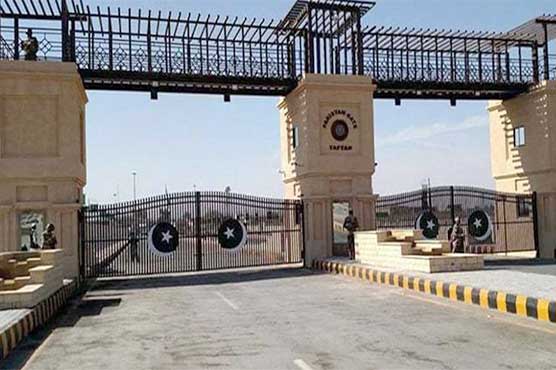Coronavirus threat: Pakistan's border with Iran remains closed on fourth day

Pakistan's border with Iran remains closed on fourth day
ISLAMABAD (Dunya News) – Pakistan-Iran border has continued to shut on fourth day today (Wednesday) as fears across the region grow over a jump in new coronavirus infections.
The government has arranged special screening process for proper checkup of over 270 quarantined passengers, who have been provided temporary residence at the border.
"We have decided not to take a chance and keep all of them under observation for the next 15 days," Najeebullah Qambrani, assistant commissioner at the Taftan border crossing told.
Balochistan’s secretary of health Mudassir Malik confirmed the quarantine but estimated that between 200 and 250 were being held. He added that around 7,000 pilgrims had returned to Pakistan from Iran this month alone.
Govt suspends rail services with Iran
Federal Minister for Railways Sheikh Rashid said that the government has decided to hold rail services with Iran to prevent coronavirus outbreak in Pakistan.
In a statement, the minister said that four trains have been suspended for indefinite time period in this regard. The decision was taken following closure of Pakistan-Iran border in a wake of coronavirus threat, he added.
Afghanistan and Pakistan share long, porous borders with Iran. Millions of Afghan refugees currently live in the Islamic Republic -- raising fears that the virus could easily spread over the border.
Pakistan -- bordered by China to the north and Iran to the south -- also suffers the additional burden of having a lacklustre healthcare system following decades of under-investment by the state, leaving impoverished, rural communities especially vulnerable.
Balochistan in particular is woefully unprepared to handle a public health emergency after being beset for decades by a separatist insurgency, jihadist violence, and neglect from the central government.
The novel coronavirus has spread to more than 25 countries, with more than 2,500 dead in China, and is causing mounting alarm due to new pockets of outbreaks in Europe, the Middle East and Asia.

